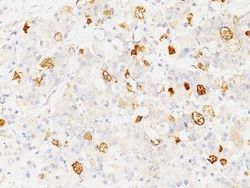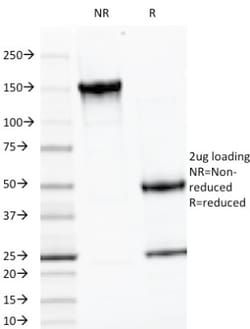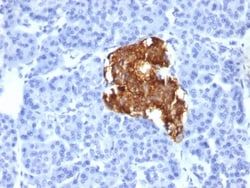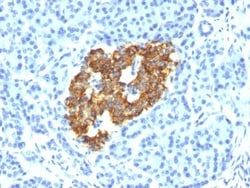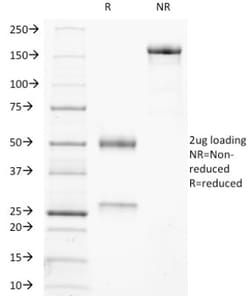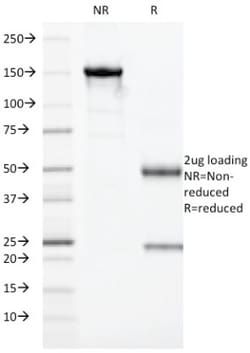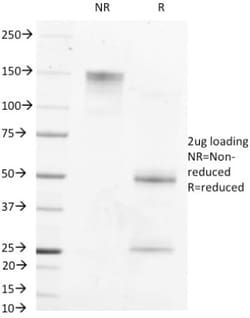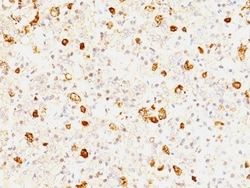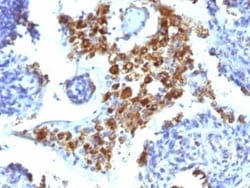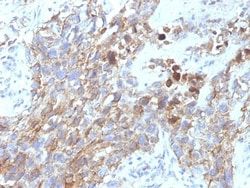FSH beta Antibody (FSHb/1062), Novus Biologicals™
Mouse Monoclonal Antibody
Manufacturer: Fischer Scientific
The price for this product is unavailable. Please request a quote
Antigen
FSH beta
Concentration
0.2 mg/mL
Applications
Flow Cytometry, Immunohistochemistry (Paraffin), SDS-Page, Immunofluorescence
Conjugate
Unconjugated
Host Species
Mouse
Research Discipline
Cancer
Formulation
10mM PBS and 0.05% BSA with 0.05% Sodium Azide
Gene Alias
follicle stimulating hormone, beta polypeptide, Follicle-stimulating hormone beta subunit, Follitropin beta chain, follitropin subunit beta, follitropin, beta chain, FSH-B, FSH-beta
Gene Symbols
FSHB
Isotype
IgG1 κ
Purification Method
Protein A or G purified
Test Specificity
This MAb reacts with a protein of 22kDa, identified as beta sub-unit of FSH. It does not cross react with the alpha sub-unit. Follicle stimulating hormone (FSH) is a hormone synthesized and secreted by gonadotrophs in the anterior pituitary gland. In the ovary, FSH stimulates the growth of immature Graafian follicles to maturation. As the follicle grows, it releases inhibin, which deactivates the FSH production. In men, FSH enhances the production of androgen-binding protein by the Sertoli cells of the testis and is critical for spermatogenesis. FSH and LH act synergistically in reproduction. FSH is a useful marker in the classification of pituitary tumors and the study of pituitary disease.
Clone
FSHb/1062
Dilution
Flow Cytometry 0.5 - 1 ug/million cells in 0.1 ml, Immunohistochemistry-Paraffin 0.5 - 1.0 ug/ml, SDS-Page, Immunofluorescence 1 - 2 ug/ml
Classification
Monoclonal
Form
Purified
Regulatory Status
RUO
Target Species
Human
Gene Accession No.
P01225, P01225
Gene ID (Entrez)
2488
Immunogen
Recombinant hFSH beta sub-unit
Primary or Secondary
Primary
Content And Storage
Store at 4C.
Molecular Weight of Antigen
22 kDa
Description
- Ensure accurate, reproducible results in Flow Cytometry, Immunohistochemistry (Paraffin), Immunofluorescence FSH beta Monoclonal specifically detects FSH beta in Human samples
- It is validated for Immunohistochemistry, Immunohistochemistry-Paraffin.
